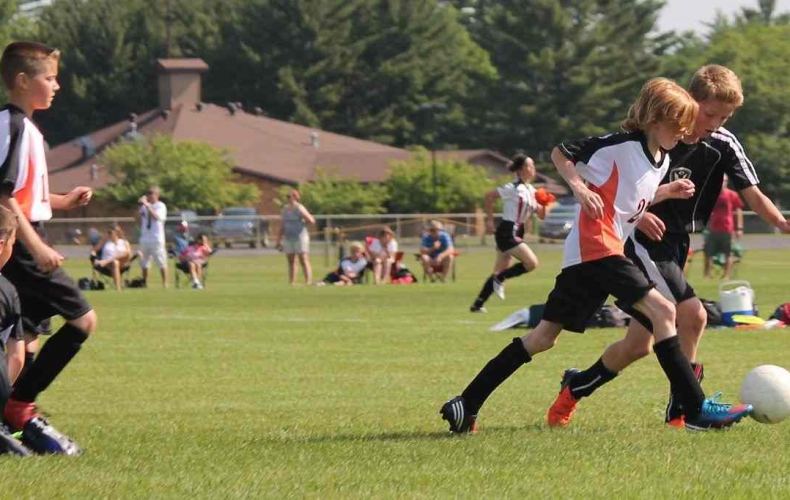Sports Liability Waivers For Minors – What You Should Know

Are sports liability waivers important for minors? Absolutely! There are many cases in which a waiver prevented a lawsuit from being successful.
While you certainly hope you’ll never get sued, we lived in a litigious society and it does happen.
Waivers are in place to protect you, and there are many cases where a well-written waiver prevented a lawsuit from being successful.
Consider the case of Zivich v. Mentor Soccer Club. An unsupervised minor was swinging on a soccer goal post, which fell backward on him. The parents sued the soccer club, but the case was dismissed due to the sports waiver they had signed.
Schools, minor sports leagues and sports camps should all have the participants’ parents sign waivers. It is important to note, however, that a waiver alone is not foolproof – you also have the responsibility to do everything in your power to minimize risk for participants.
This post explores your legal position as a sports program for minors and how to ensure your liability waivers are airtight.
Do Waivers Signed by a Parent Protect Us In The Event of Injury?
Waivers do successfully protect businesses on a regular basis, including those signed by parents on behalf of a minor.
But no liability waiver will ever provide you with 100% protection against lawsuits. Waiver laws are different in every Country, State or Province, and generic waivers pulled off the web may have loopholes in the language that can be exploited. You may also not be protected if you can be shown to be guilty of gross negligence.
However, waivers that are written by lawyers and include all the right language can and do protect sports organizations against legal action.
Understanding Negligence and Assumption of Risk
A waiver is a contract stating that the risks of activities are understood and that the signee waives the right to sue. In the case of a minor, it MUST be signed by a parent as minors are considered legally competent.
Its purpose is to protect your organization from legal action when an injury arises due to risks inherent in an activity. For example, the parent of a child who trips in a soccer game and gets a concussion cannot sue your organization. This aspect of a waiver is also known as assumption of risk.
A liability waiver can also protect your organization against claims of ordinary negligence. In the context of a sports program, ordinary negligence would be the failure to take reasonable precautions to protect the safety of all minors involved.
Some examples of ordinary negligence in a sports program would be:
- Providing protective gear that is broken or falling apart
- Allowing minors to use equipment that is in disrepair
- Injury resulting from a lapse in supervision or improper supervision
- Staff who were involved in first aid treatment had expired certifications
- Not properly blocking access to dangerous or restricted areas
In general, a waiver protects your business if the following three conditions are met:
- If the injury is related to risks directly stated in the waiver, or as a result of ordinary negligence
- The waiver is properly drafted for state law
- Language in the waiver does not violate the law or public policy
Gross negligence, on the other hand, is when an action is deemed “extreme indifference to or disregard for the safety of others.” These claims are harder to prove but can arise if your staff fail in their legal duty of care. Consider the above example of the concussion in soccer. If it were an ice hockey game and you did not insist the child wear a helmet, that would be considered gross negligence.
A gross negligence claim may also arise due to the mishandling of an incident. One example would be if your staff neglect to give first aid or give improper first aid despite being certified.
That is why it is important as an organization to consistently review safety policies, conduct first aid site training, and ensure all qualifications of your staff are up to date.
Maximize The Effectiveness of Your Sports Waivers
To make sure your waiver is airtight, it should be written by a lawyer. It must be specific to your program including all the risks involved, along with negligence and assumption of risk clauses specific to where your program is located.
Waiver documents must also be separate from sports consent forms. Combined forms are less successful as a defense because the important clauses are often buried.
One way to ensure your waiver is prominent is to have it signed electronically. You can use WaiverForever to email the form to parents ahead of time and have them sign the document electronically. These forms are then cataloged in a centralized online database where they are easy to pull. You can also present waivers to parents right there on the field using any mobile device.
It is also important to note that a waiver form is in no way a replacement for proper insurance.
Protect Yourself!
Hopefully this post has opened your eyes to the legal risks involved in running sports programs. We unfortunately live in a very litigious society, so make sure you take it upon yourself to minimize those risks and ensure your waiver forms are up to date.